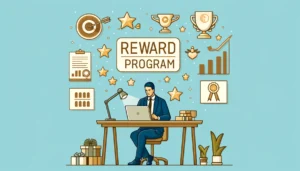HRD Roundtable Report: Know Your People: Tackling Attrition and Retention Through Employee Listening
- 8 Min Read
Know Your People: Tackling Attrition and Retention Through Employee Listening Employees’ priorities around the world are continuing to change, with the ongoing aftereffects of the pandemic only accelerating this transformation. We saw this manifest earlier in the year in the Great Resignation trend, and we should expect to see further market challenges in the months […]
- Event Types
- Date of Event: Aug 11, 2022


Know Your People: Tackling Attrition and Retention Through Employee Listening
Employees’ priorities around the world are continuing to change, with the ongoing aftereffects of the pandemic only accelerating this transformation. We saw this manifest earlier in the year in the Great Resignation trend, and we should expect to see further market challenges in the months to come. How can organizations keep close touch with their employees and avoid being swept up in these external trends?
Led by Nikhil Shahane, Vice President Talent & Engagement, TechnipFMC and supported by further insights from Matt Orozco, Sr. Manager, Mindset & Retention Programs, Workday, this discussion with senior HR leaders was conducted under Chatham House Rules. This report will contain the key discussion areas and all participants will be anonymised.
A note from the moderator, Nikhil Shahane:
I had the pleasure of moderating a virtual roundtable on attrition and employee listening with bunch of awesome HR leaders in US and Canada. What I liked most was the engaging conversation, openness, and impactful takeaways I managed to get out of this short call.
One gem in particular was how very often we talk about survey fatigue and hesitate to do frequent surveys. When it is actually fatigue resulting from ‘no actions’ taken linked to previous survey/s as opposed survey fatigue in itself. Thanks HRD for bringing us together!
Setting the Scene

Where are we seeing attrition right now?
Compared to a recent McKinsey report on job-leavers which inspired this poll, the group found very similar results. Lack of Career Advancement and Inadequate Compensation were switched for McKinsey, with Uninspiring Leaders in 3rd place. Are our perceptions of the trends different from those leaving jobs, or have external trends (rising inflation etc) already affected why people leave?
Workday have found that scores on the growth driver question are on average 13% higher in those who stay as opposed to those who leave. We heard from one participant who is starting to measure cost in terms of turnover (training and bringing people up to speed) rather than hiring. They are not struggling to attract talent; the cost is in losing and replacing talent. Progression has to be available throughout the employee lifecycle. Another participant shared how they have found the critical period is the first 3 years with the business. This means that on-boarding processes need to be up to scratch, particularly with the switch to remote working that we are all still working through.
Gen Z has shown to have changing expectations of their development, and how to shape their careers. They are not ‘afraid’ to look elsewhere and move around, rather than sticking with one employer for their whole careers. Are we speaking to these changing expectations and acknowledging them?
The group had mixed views on compensation as a factor. On the one hand, there is of course a huge market shift currently, and things are very competitive. It is to be expected that people will find it hard to say no to a very generous offer. Organizations also need to consider whether they are truly competing. What was competitive a few months ago could now be bottom of the range for a role. With loss of income during the pandemic and inflation since, people’s needs may also have shifted – someone who was comfortable a few months ago, may no longer be. If you cannot meet that compensation level, how else are you upgrading your EVP?
‘Compensation’ can also be a convenient reason for leaving when an employee does not feel comfortable sharing the true reason. Can we ask, ‘why did you pick up the recruiter call’ instead?
We need to think about when we are asking people these questions. Exit interviews are relied on for a lot of feedback, but at that point it is already too late to do anything with that information. When you look at the reasons people stay vs the reasons they leave, there is often strong alignment, so what other data can we explore?
How are we tackling lack of growth opportunities?
Some organizations are focussing in on the critical roles, with a goal to develop a sustainable line of successors. How do we narrow down to the set of people that we really need to invest in retaining? This could look like supporting further certifications or exams, developing cohorts or pods of learners developing together.
The highest attrition levels are often at entry level – people coming in with little or no experience. These may not be critical roles, but stopping these gaps helps drive continuity for the business. How do we create launching pads for new joiners to really inject fresh ideas and capability into the business?
For some industries, the challenge is in re-establishing that there are viable career paths here. For example, in hospitality, which saw so much redundancy and downsizing during the pandemic and where almost every position was vulnerable, trust will need to be rebuilt. Compensation is important here again – people know they have transferrable skills and can find work elsewhere, so why return to a potentially precarious job if the pay isn’t competitive?
Evolving leadership development
We need to invest real time into evolving leadership skills, not just skills that will grow our offerings. Coaching and mentoring should be for everyone, and we need leaders at every stage of the business. There is currently a huge gap between the skills we have available and what we need leadership to have. The pandemic has highlighted the value in soft skills and the impact they have. Now that we are heading back into the office, how can we ensure we do not lose sight of the skills that got us through the pandemic?
We also need to think about the leadership roles we create for our experts. These are the people in specialist roles who will likely never be on the leadership team. They still deserve leadership development and to see a path in the business. What does this look like for them?
How do we listen more?
The group was generous with sharing strategies that they have found success in boosting their listening.
- One click polls – making the ask short (limited to a few questions), but frequent. This avoids the long survey, whilst hopefully collecting meaningful information. The focus should be on the follow-up, which could be focus groups or 1on1s, not more surveys.
- Focusing on leader engagement in the process. Leaders need to be having these conversations with their teams and be held accountable for changes. Genuine interest beats all other kinds of engagement!
- Access to the CEO – this could look like a CEO breakfast. One participant shared how they have set this up monthly, with random employees to get a broad, viewpoint and make access to the CEO flat.
- Creating cohorts or Employee Resources Groups to assign action. Employees want to feel part of developing the solutions, so get them involved with task groups.
- Open conversation boards, using tools like Yammer or Mural – creating the space for people to share ideas and start a conversation.
Survey fatigue
Survey fatigue is more about lack of follow up than fatigue at taking surveys. Where is the incentive when no change is made? When changes are made, we need to concretely loop them back to feedback. Make it clear that these changes were made because they were requested – and this is how you can impact the organization!
Data openness is key – teams need access to the results (where appropriate), but also the skills and tools to interpret and do something with that data. This should not just sit with HR. We also need to be aware that trends change quickly – what was relevant 2 months ago may have been switched out for a new concern. How do we act quickly? How do we use previous data to make predictions?
Organizations need to think carefully about what they are asking. If we know we cannot do anything about Topic A, probably best not to ask for feedback that will be seen as being ‘ignored’. Focus on what can be developed.
We also need to think about where else we can listen and infer useful information. What other contexts can we look at for some of the feedback? Where else do people communicate and where are they engaged beyond the channels we create for feedback. Where are the silent problems and the people afraid to speak up?
Start with ‘we’ve heard you, this is what we want to do about it, and this is what’s next’
Final thoughts
There is a lot of desire to make things better, to listen better and act on this. This is a moment of opportunity, as long as we keep the momentum going!
See here to register for the following sessions in this series: Workday US HRD Roundtable Series 2022 (hrdconnect.com)








